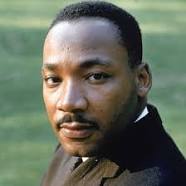Daily Stormer
January 20, 2014

Decades ago, well-meaning liberals came up with the genius plan to find main streets going through black neighborhoods and name them after the alleged black hero, communist Martin Luther King, Jr. This would obviously sooth the poor hurt feelings of the childlike blacks, and help them to rise up and begin to behave like human beings.
To the shock and awe of these well-meaning liberal, MLK boulevards across the nation are now cesspits of filth and criminality. We don’t know why this is, but we are certain that it is somehow whitey’s fault.
From AP:
Nearly three decades into the observance of Monday’s federal holiday honoring the slain civil rights leader and Nobel Peace Prize laureate, the continuing decline of the most visible symbols of King’s work has White and others calling for a renewed commitment to the more than 900 streets nationwide named in the Atlanta native’s honor. The effort centers in St. Louis, where the small nonprofit is working to reclaim MLK roadways as a source of pride and inspiration, not disappointment over a dream derailed.
White’s goals are ambitious, his resources admittedly modest. A neighborhood park is planned across the street from the group’s headquarters. An urban agriculture project to encourage residents to eat healthy and grow their own food has preliminary support from nearby Washington University, one of the country’s wealthiest private colleges. Above all, Beloved Streets of America wants to build community from the ashes of what was once a thriving retail corridor when White was a child.
The template can be found just a mile away. Delmar Boulevard, which saw a similar decline, is now a vibrant retail corridor packed with restaurants, nightclubs, a renovated movie theater and a boutique hotel. The renaissance earned Delmar recognition in 2007 as one of “10 Great Streets in America” by the American Planning Association.
Journalist Jonathan Tilove, who wrote a 2003 book based on visits to 650 King streets nationwide, called the King byways “black America’s Main Street.”
“Map them and you map a nation within a nation, a place where white America seldom goes and black America can be itself,” he wrote. “It is a parallel universe with a different center of gravity and distinctive sensibilities. … There is no other street like it.”
But while streets named for King undoubtedly resonate widely in the black community, a University of Tennessee geography professor whose research explores the cultural and political significance of such streets said the compromised condition of streets named for King in St. Louis and other cities deserves broader attention.
“In some ways we racially profile these streets,” said Derek Alderman, author of a 2007 study that found a smaller disparity among MLK-named streets and other “main streets” than is popularly portrayed. “We need to move beyond those images and see what concrete lives and realities are living on those streets.”
More than 50 years after King led his march on Washington, communities large and small still debate whether to rename local streets in his honor. In Harrisonburg, Virginia, city leaders recently agreed to rename a street for King over protests by some residents. A similar debate continues in High Point, North Carolina, where a King street proposal first suggested two decades ago remains up in the air.
Other cities have had more success in balancing the desire to commemorate King without superseding local tradition. Alderman singled out Chapel Hill, North Carolina, which in 2005 renamed a major thoroughfare that abuts the University of North Carolina campus. Street signs that identify Martin Luther King Jr. Boulevard also include the name “Historic Airport Road.”
Chicago’s Martin Luther King Drive, a major thoroughfare spanning roughly a dozen miles south of downtown, is anchored by important hubs of black life in the city. The street features grassy boulevards with stately greystones, while other segments touch rougher patches that have fallen into disrepair, including a dilapidated motel that drew community protests over crime. Gentrification is taking hold along some parts.
